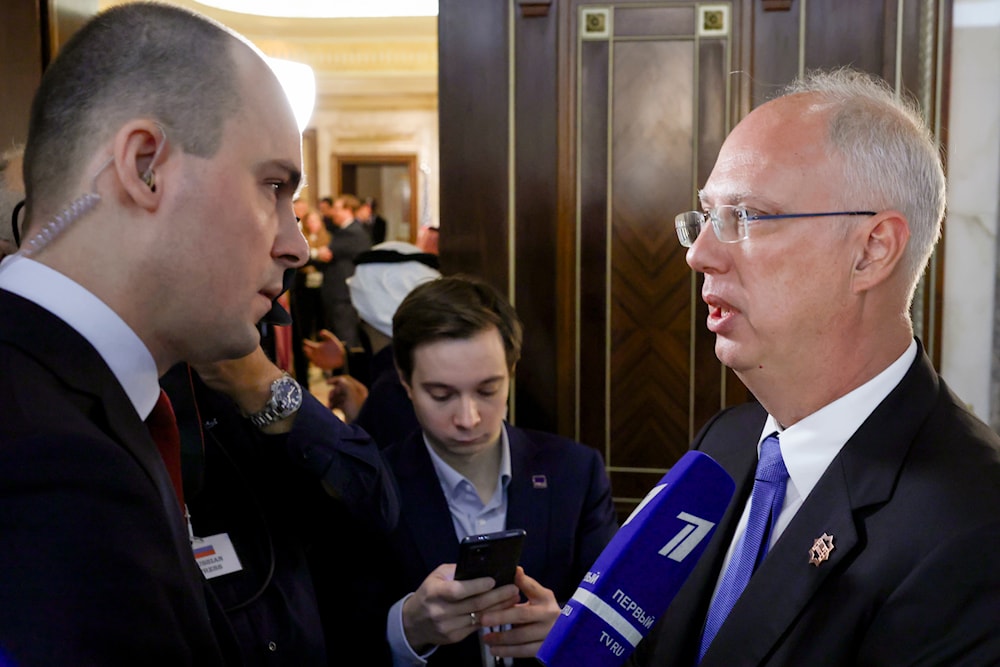Top Russian official visits US to discuss improving bilateral ties
The top Russian official's visit to the United States is the first since the start of the war in Ukraine, and US media reported that he is going to meet with Trump's envoy Steve Witkoff.
-

The head of Russia's sovereign wealth fund Kirill Dmitriev, right, speaks to a member of the media on the sidelines of the U.S.-Russia meeting at Diriyah Palace, in Riyadh, Saudi Arabia, on February 18, 2025. (AP)
Russia's top economic negotiator visited Washington on Thursday for talks on improving ties, in the highest-level Kremlin trip to the US since the war in Ukraine started in 2022.
Kirill Dmitriev, head of Russia's sovereign wealth fund, said he was meeting with Trump administration officials in Washington but gave no details, while US media reported that Dmitriev arrived on Wednesday and is expected to meet Trump's special envoy to the Middle East Steve Witkoff, at the White House.
"The dialogue between Russia and the United States, which is crucial for the entire world, was completely destroyed under the Biden administration," Dmitriev wrote on his telegram channel, adding, "Restoring dialogue is not an easy process, and it's gradual. But every meeting, every frank conversation allows us to move forward."
Dmitriev, a sanctioned former Goldman Sachs banker and Stanford graduate, could visit after temporary restrictions were lifted. Having previously participated in February talks with Trump officials in Saudi Arabia, he has been instrumental in US-Russia rapprochement efforts.
The White House has not commented on the visit, while the Kremlin stated that details would be shared only after the meetings conclude. Although Dmitriev has not revealed the discussion topics, his visit follows Trump's criticism of the slow progress in Ukraine ceasefire negotiations.
The United States and Russia reached a diplomatic row, with Trump expressing his annoyance at the Russian President Vladimir Putin for rejecting an unconditional ceasefire, and conditioned a US-proposal for a truce in the Black Sea to the lifting of certain sanctions.
Economic coercion under the guise of diplomacy
Russia announced on March 25 that a US-mediated deal to suspend military operations in the Black Sea would only take effect if certain sanctions, particularly those targeting its state-owned agricultural bank, were lifted.
Amid rising tensions, President Trump has threatened to escalate pressure—not through diplomacy, but via punitive economic measures. In a recent interview with NBC News, Trump said he would impose secondary tariffs of up to 50% on all Russian oil exports if he concludes that Moscow is not cooperating on a peace deal.
"If Russia and I are unable to make a deal on stopping the bloodshed in Ukraine... I am going to put secondary tariffs on oil, on all oil coming out of Russia," he said, warning that countries or companies buying Russian oil could also face US penalties.
Though Western sanctions have led to a reported 16% decline in shipments by Russian state-owned Sovcomflot in 2024, Moscow has adapted by working with non-Western partners and employing a fleet of independent vessels—dismissively labeled a "shadow fleet" by Western officials—to sustain its oil trade.

 3 Min Read
3 Min Read










